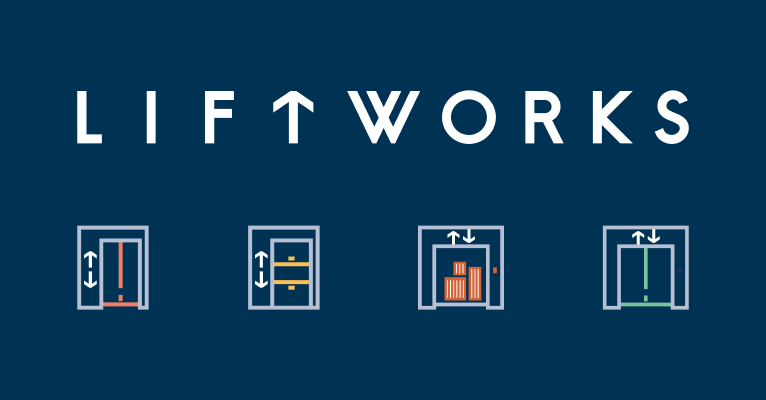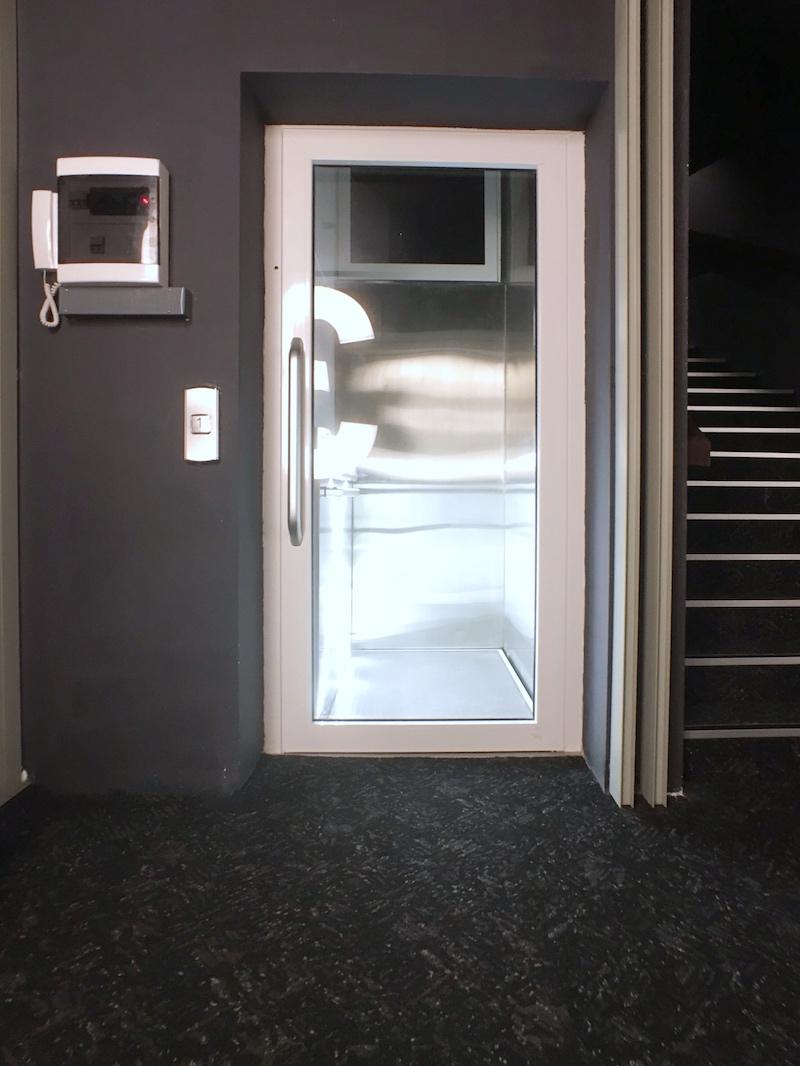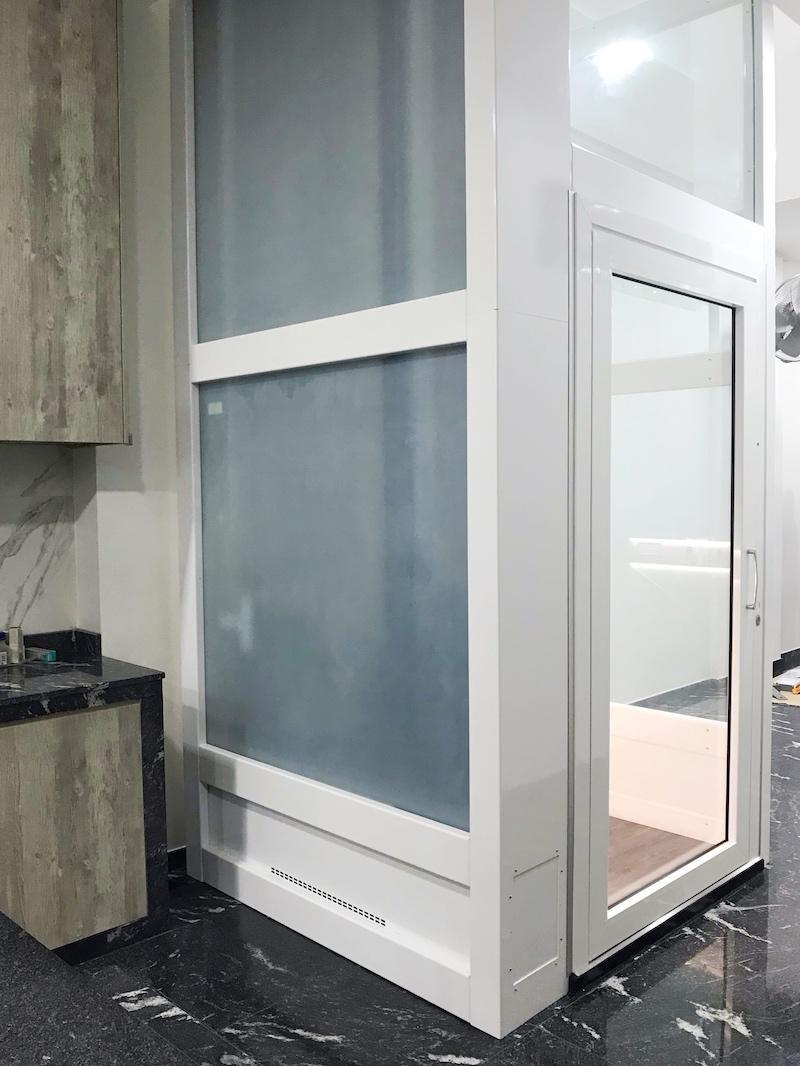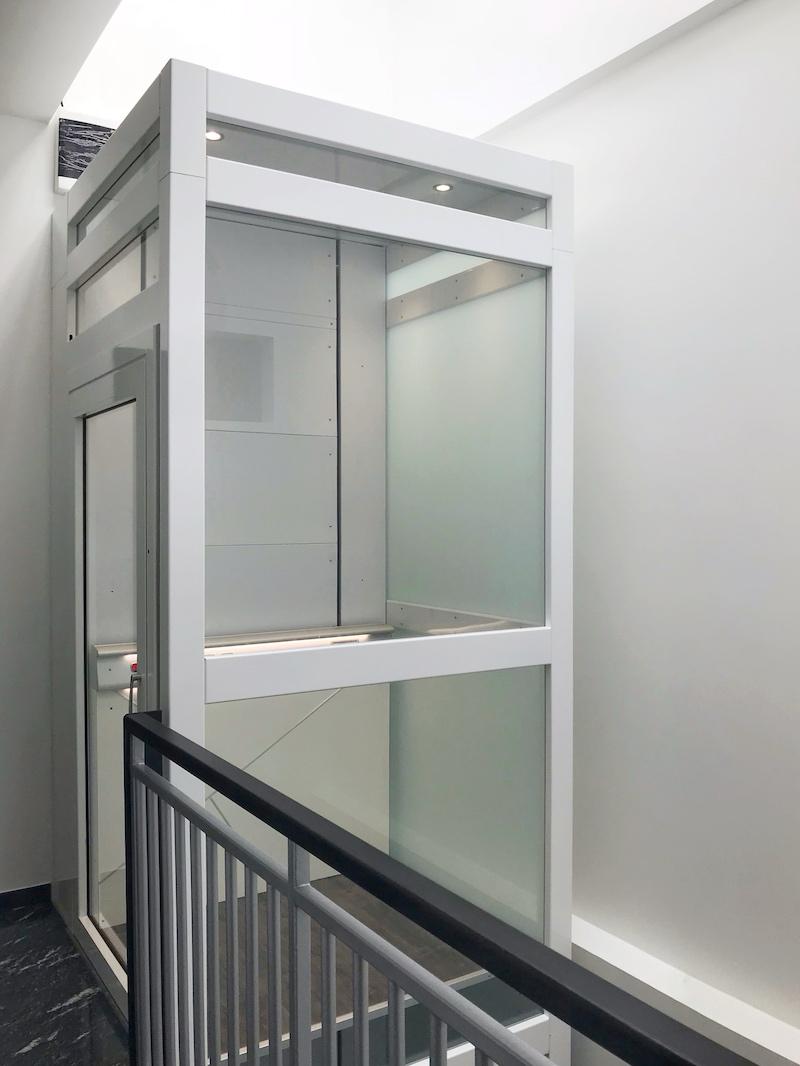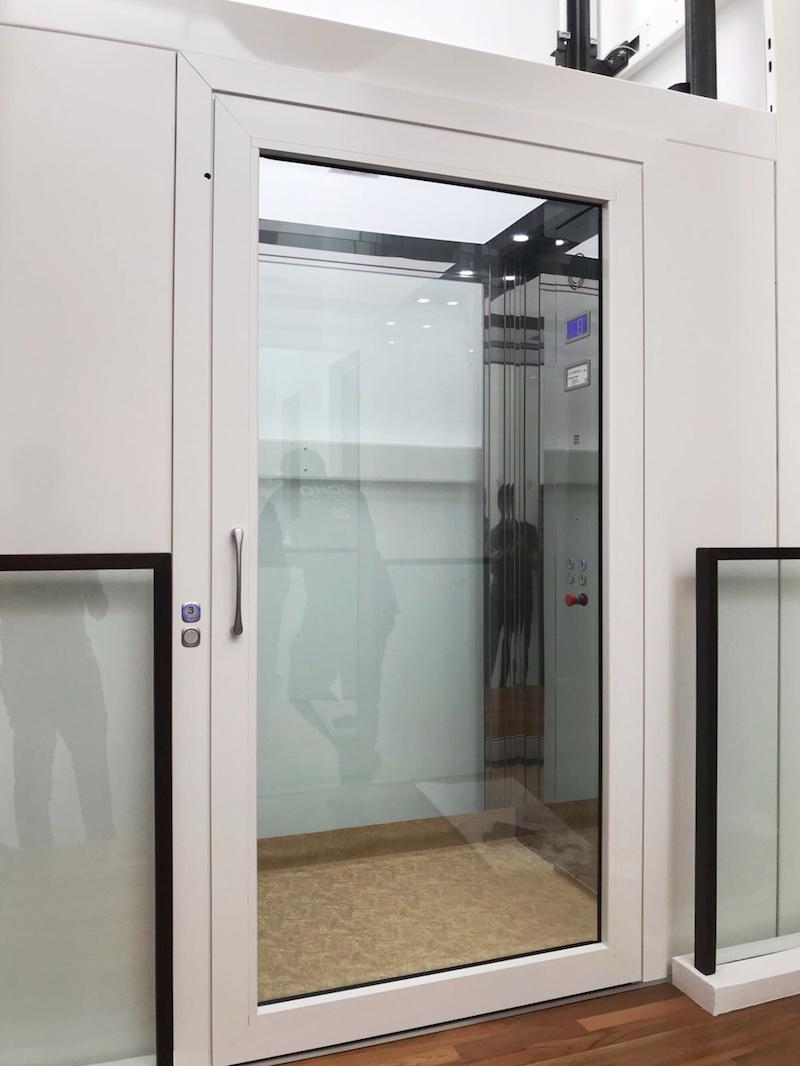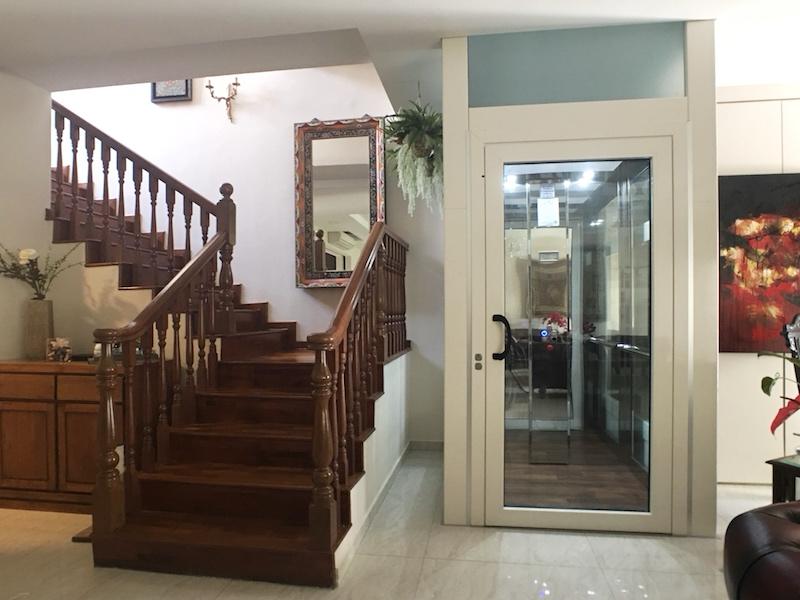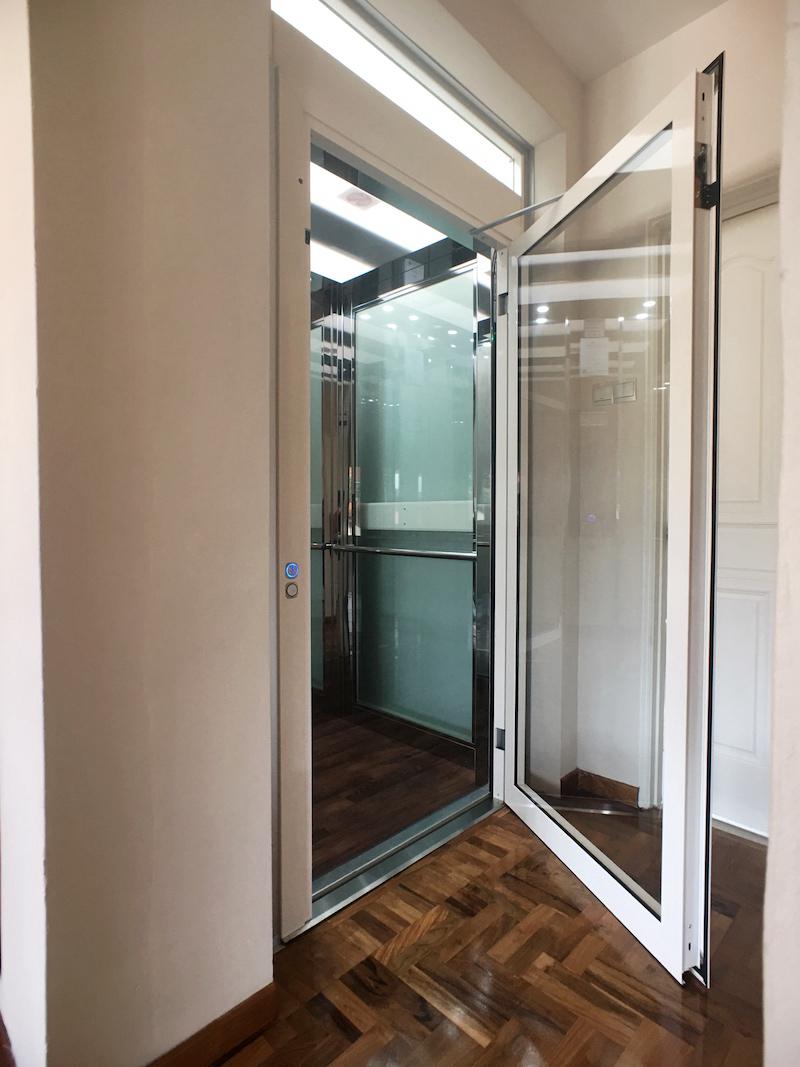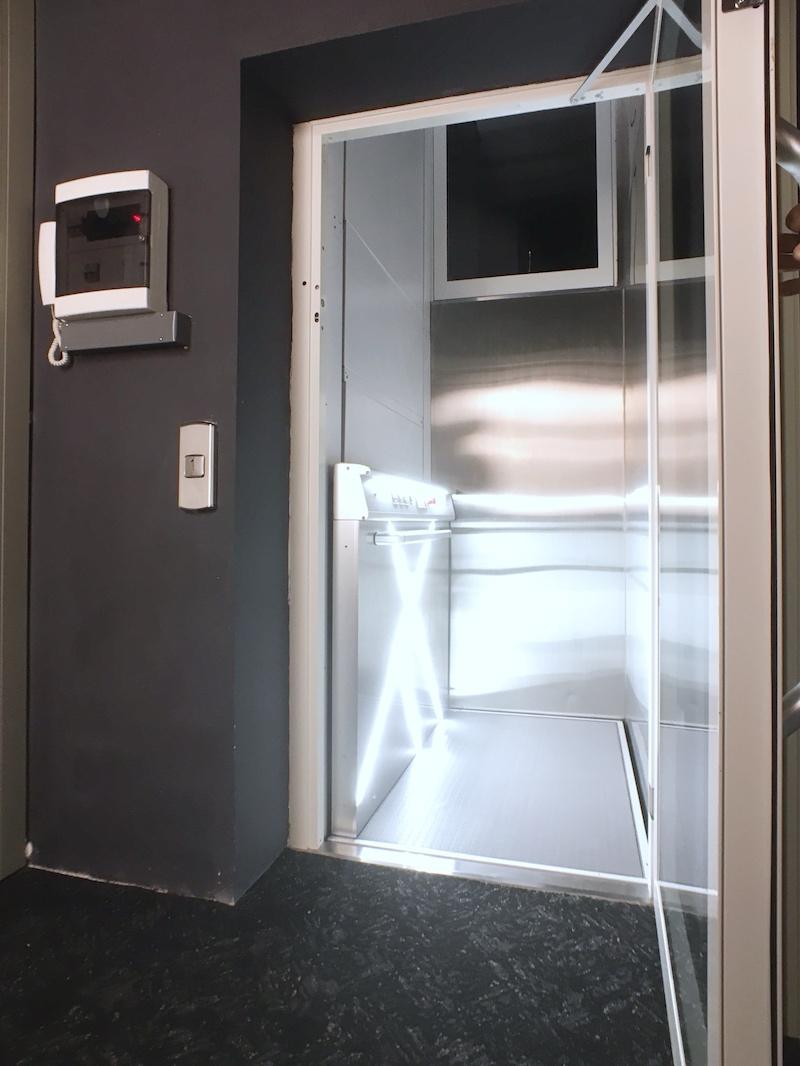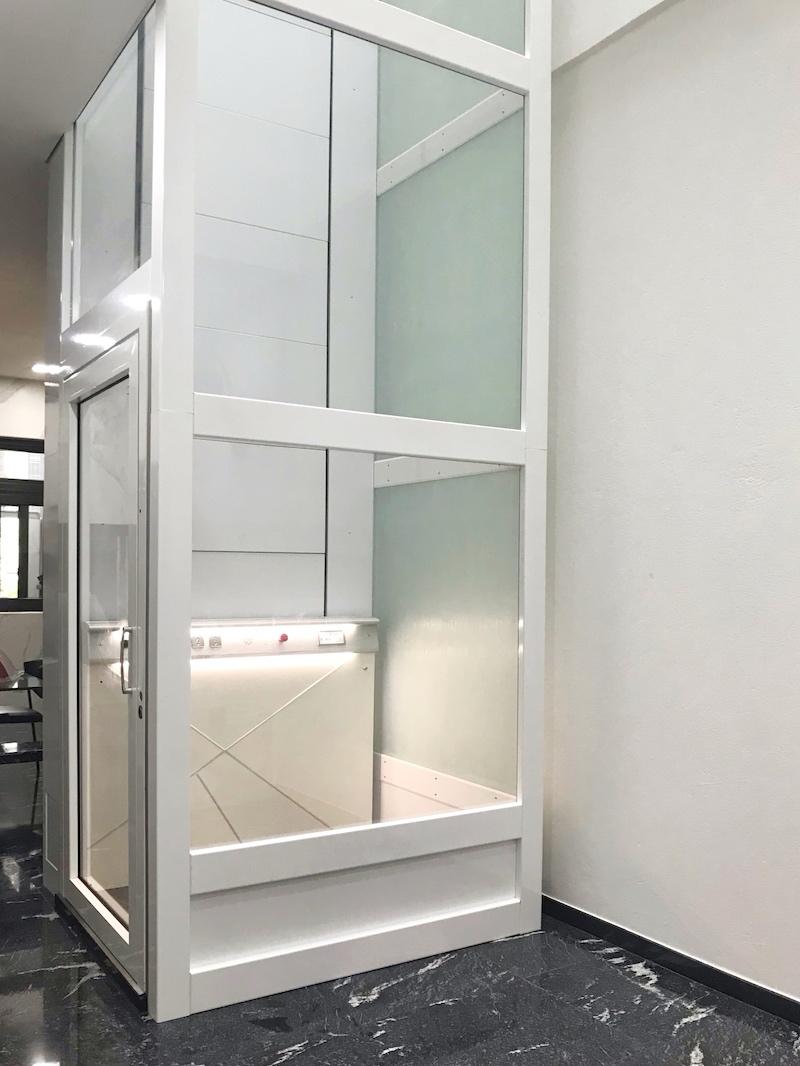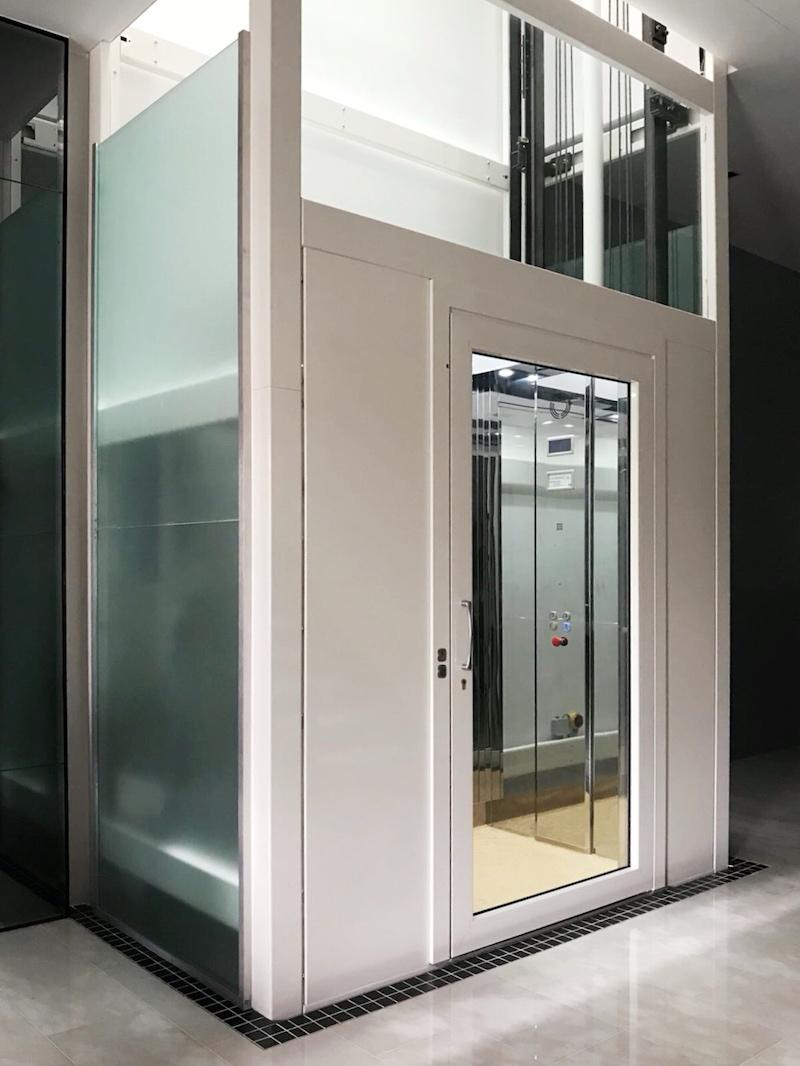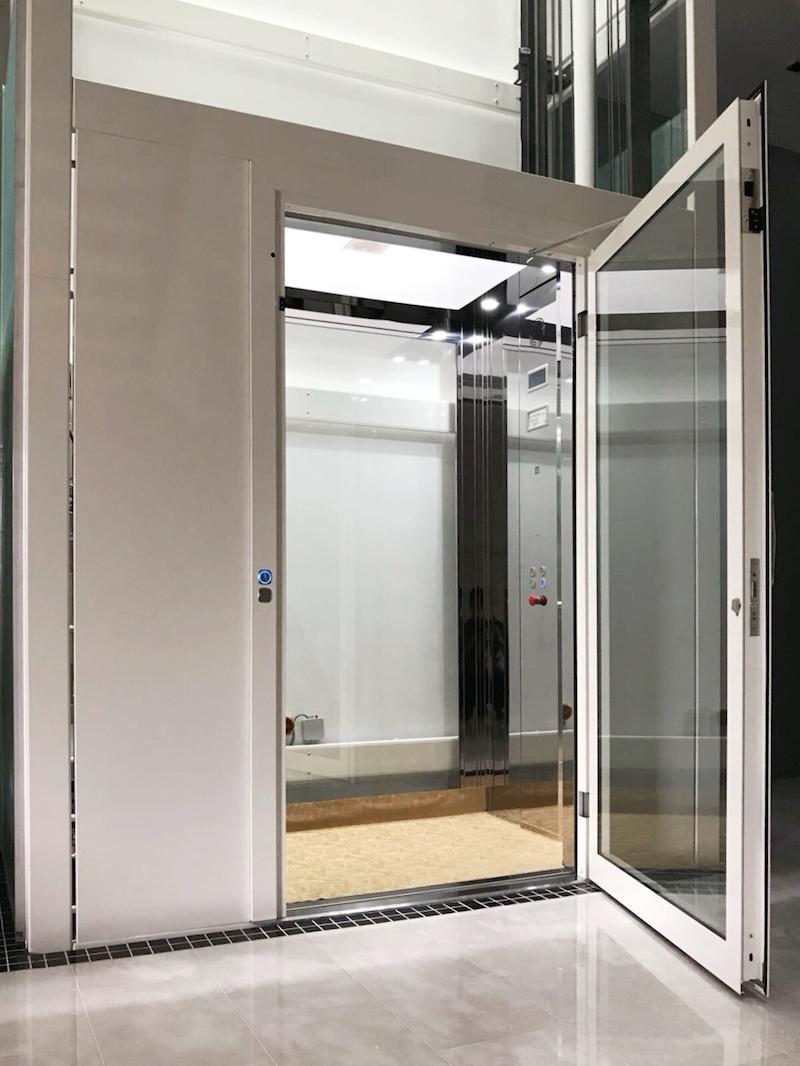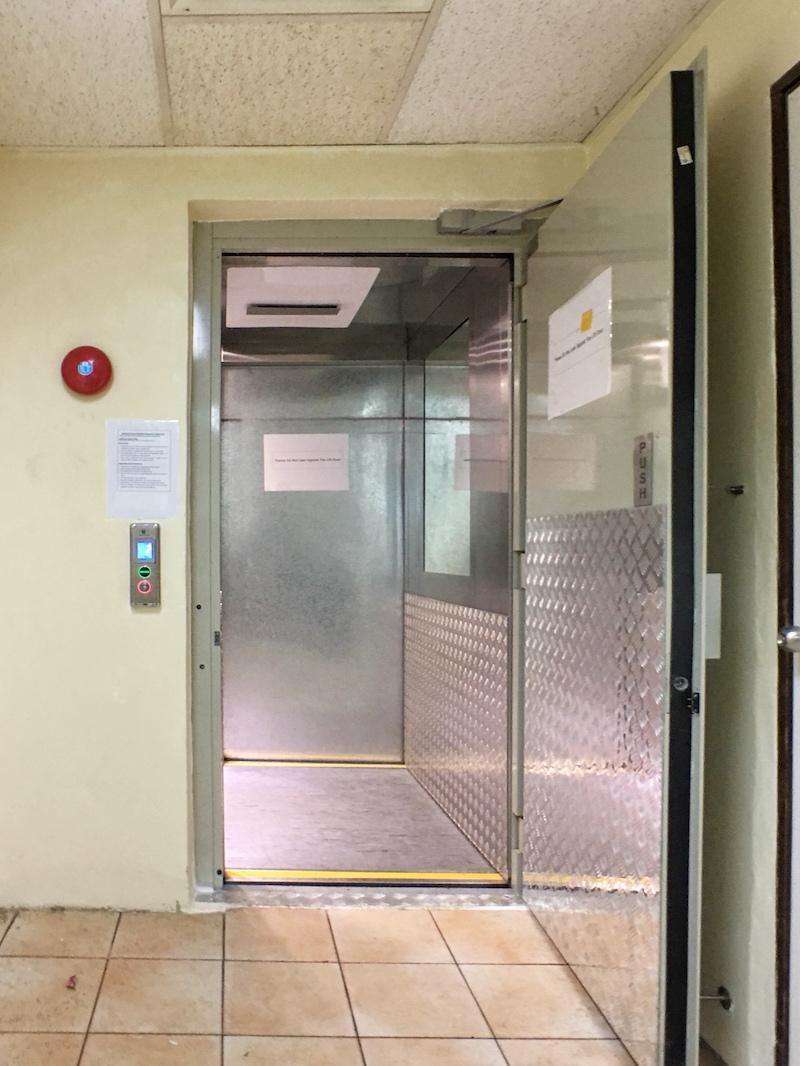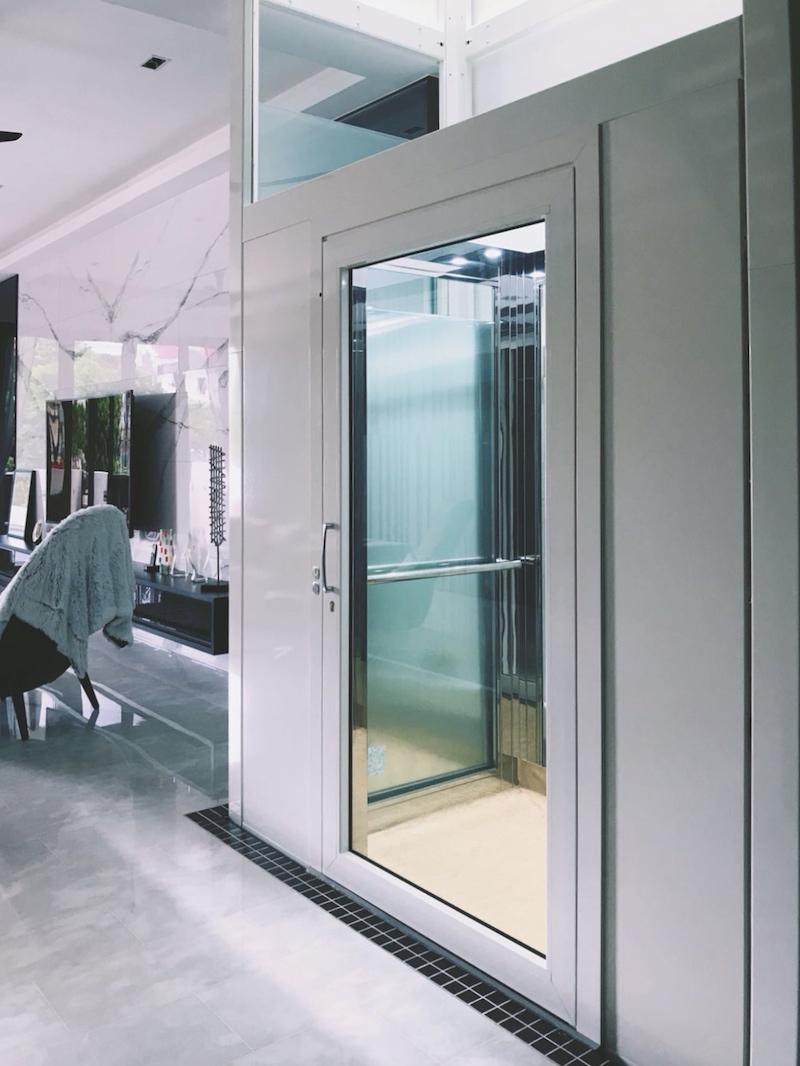Home Hydraulic Lift
A compact and versatile lift solution designed for homes with space limitations or retrofit requirements.
Flexible
Space-Saving
Reliable

Detailed Description
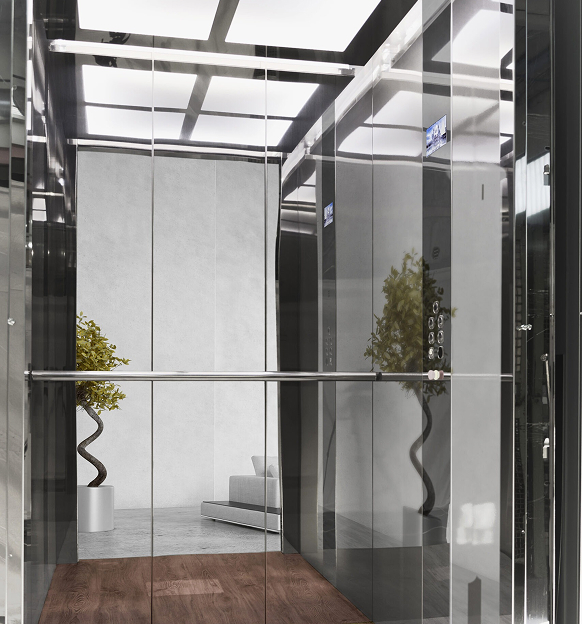
The Home Hydraulic Lift is engineered for homes with limited space, offering maximum accessibility with minimal structural changes. Unlike traditional traction lifts, hydraulic lifts do not require a deep pit or a dedicated machine room, making them an ideal choice for retrofits, A&A (Additions & Alterations), and low-rise residential buildings.
Powered by a hydraulic cylinder system, this lift delivers smooth, quiet vertical movement and can be installed in buildings up to three storeys. In the event of a power failure, a manual lowering valve ensures safe evacuation from the lift car—adding an important safety layer.
The hydraulic system is designed with Italian engineering precision, ensuring long-term reliability, low maintenance, and compliance with BCA and EN81-41 standards.
Customisable in size and cabin finish, this lift adapts beautifully to both classic and modern interiors.
Key Features
Compact design — perfect for tight spaces
Requires minimal headroom and pit depth
Ideal for retrofit or A&A home upgrades
Smooth, quiet operation
Manual lowering valve for power outage safety
Customisable cabin designs and finishes
Compliant with BCA and EN81-41 standards
Designed with Italian engineering quality
Technical Specifications
Directive
EN81-41
Load Capacity
min. 250kg – max. 395kg
Maximum Travel
24 metres
Stops
7
Speed
0.15 m/s
Power Supply
230v, Single-phase / 50hZ
Pit
min. 150 mm
Headroom
min. 2800 mm
Entrances
1, 2, 3
Landing Doors
Manual swing
Cabin Doors
No door
Door Opening
550 – 1200mm
Control
Hold-to-run from the cabin
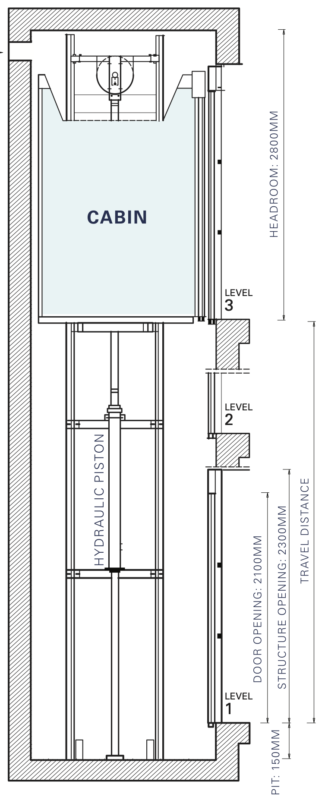
Our
Frequently Asked Questions

1. What types of lifts do you supply and install?
At Lift Works, we specialize in providing and installing a wide range of lifts for residential, commercial, and industrial applications. Our products include:
Home lifts (Traction, Hydraulic)
Cargo lifts
Dumbwaiters
Material hoists
With over 40 years of experience, we have developed expertise in offering tailored lift solutions for various needs.
2. Do all lifts operate on the same mechanism?
No, different lifts use different systems, depending on the needs of the space and installation requirements. The two most common systems are:
Gearless Traction System: Known for its energy efficiency, smoothness, and faster ride, this system is ideal for new constructions with adequate space for installation.
Hydraulic System: A more flexible option, suitable for retrofit projects with smaller space requirements. While it offers a slower ride, it’s a cost-effective solution for homes and commercial buildings.
3. How do I decide which lift is best for my home, office, or building?
4. What's the difference between cargo lifts and material hoists?
The main difference is the cargo lift is designed to carry both goods and passengers, while a material hoist is strictly for transporting goods only.
5. Do you offer lift maintenance and servicing?
6. Do you offer lift modernization services?
Yes, we offer modernization services for existing lifts to meet the latest BCA regulations and improve their performance. Reach out to us at sales@liftworks.co
for further discussion.
1. Is my landed home suitable for a lift installation?
Yes, most landed homes can accommodate a lift. Even if your home is already built, we can often retrofit a lift. For new constructions or Addition & Alteration (A&A) projects, it’s best to plan for a lift from the start to have full flexibility with lift system choices.
Contact us at projects@liftworks.co to discuss your options or schedule a consultation.
2. What is the maximum load capacity of a home lift?
The capacity depends on the available space. The standard home lift car is typically 900 x 1200mm and can carry up to 400kg — enough to accommodate a wheelchair and an additional person.
3. How much does it cost to install a home lift?
The cost varies depending on several factors such as the lift system chosen, structural requirements, and finishes. Generally, a basic model may cost less than purchasing a car in Singapore.
4. How long does it take to install a home lift?
From confirmation, the fabrication and shipment process usually takes 2-4 months, with installation taking approximately 1 month.
5. How long will my home lift last?
A well-maintained lift can last between 15-20 years, depending on usage and maintenance.
1. What is a dumbwaiter and how does it work?
A dumbwaiter is a small elevator used for transporting goods, typically between floors. It can carry 50-300 kg loads and operates using a traction lift system with pulleys and counterweights.
2. What is the weight limit for a dumbwaiter?
Dumbwaiters can handle loads from 50 kg to 300 kg, depending on the model. For larger items, a 1.2m x 1.2m dumbwaiter can transport up to 300 kg.
3. Why should I install a dumbwaiter in my commercial building?
Dumbwaiters help transport goods efficiently between floors, reducing manual labor and improving safety. They’re ideal for restaurants, hospitals, schools, and businesses with multiple floors.
4. Can a dumbwaiter be installed in a landed home?
Yes, a dumbwaiter is useful for moving heavy items between levels, whether it’s for home or commercial use.
5. Does a dumbwaiter require government approval for installation?
Yes, a dumbwaiter needs approval from the Building and Construction Authority (BCA). We handle the approval process for you, ensuring a smooth installation.
6. How long does it take to install a dumbwaiter?
From confirmation, fabrication and shipment can take 1-2 months, and installation typically takes around 3 weeks.
